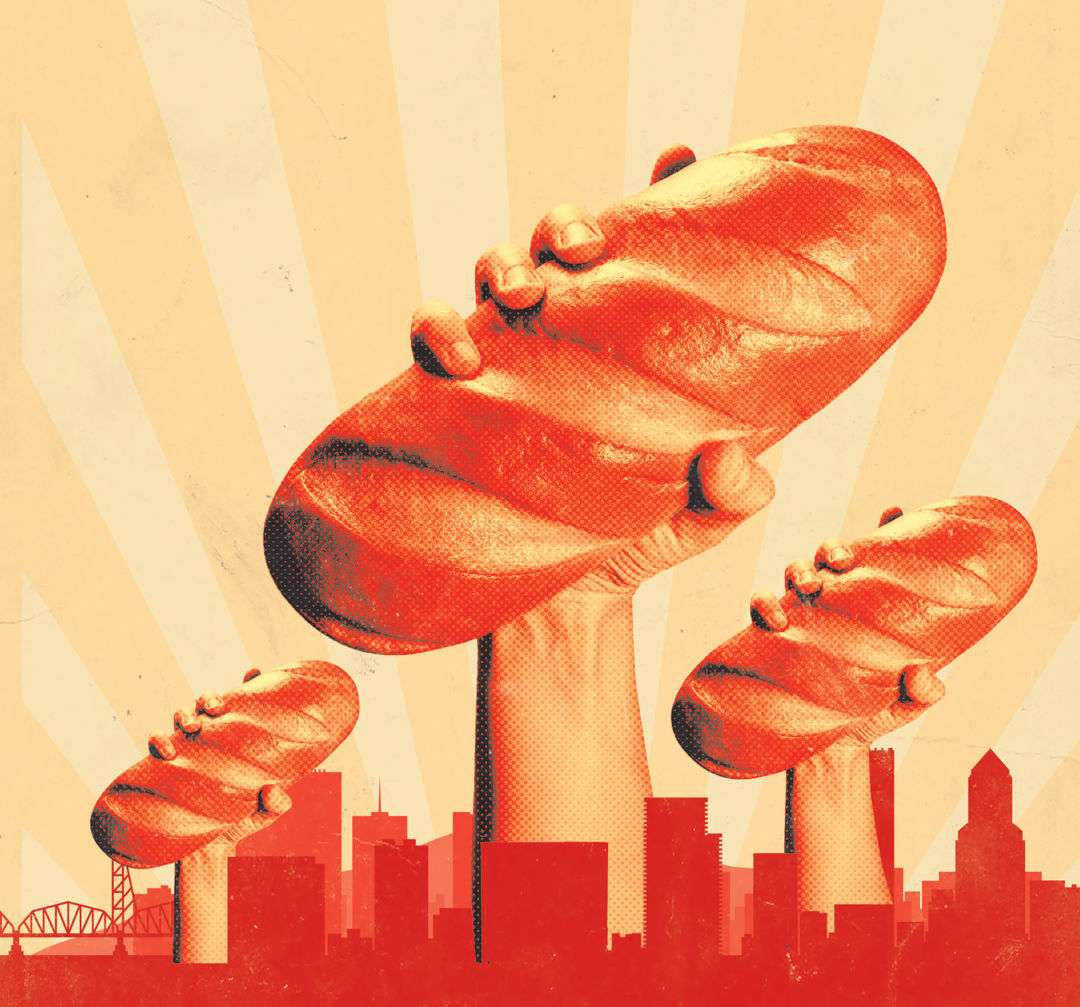The Quiet Cabal of Whole Grain Fanatics Powering Portland’s Bakeries

Image: Brian Breneman
Bread dough isn’t the only thing rising in the kitchens of some of Portland’s most interesting bakers. Their spongy, tangy, naturally leavened loaves are cooking alongside a quiet revolution steered by the fledgling PDX Whole Grain Bakers Guild.
Founded by local food writer Adrian Hale and Annie Moss of North Portland’s Seastar Bakery, the scrappy guild of professional and home bakers is bound by a shared devotion to working with Northwest-grown whole-grain flours, a goal that supersedes jostling for customers or accounts. Members band together to source these hard-to-find flours, piggyback on each other’s orders, post job openings, and swap baking advice.
Guild members include a diaspora of bakers who are alums of Tabor Bread, a Southeast Portland bakery founded in 2012 that was among the first in the city to emphasize the use of locally sourced whole-grain flour for bread. Other comrades are bakers whose passion for whole-grain flour extends from cookies (Joanna Strahm from Small Baking) to organic ramen noodles (Lola Milholland from Umi Organic).
Together, they seek out and learn to work with Northwest-grown heirloom grains like ancient emmer wheat, nutty spelt, and hearty buck-wheat flour, among many others. They order together from local grain farmers and millers—large operations like the Camas Country Mill as well as small outfits like Junction City–based Lonesome Whistle Farm. And guild members offer each other practical support, as well: Seastar Bakery allows smaller operations to tack on tiny grain orders to their larger-scale ones, and serves as a pickup location. That collaboration, in turn, lets home bakers and tiny businesses support the local farmers who grow the whole-grain flours.
Members meet occasionally, as time allows, but most of their “meeting” happens via a lo-fi online forum, where the guild’s many hats—support group, purchasing club, incubator—really come into focus, with bakers offering tips and answering calls for help.
“This idea that success is mutually exclusive is a message that gets spread around very effectively in our capitalist culture, but it doesn’t actually benefit us,” says Moss. “Instead, it feels much better to just say, ‘We’re all in this together; running a small business is hard.’ We’re all doing our best to innovate in the restaurant industry, which is really brutal. Also, it’s a chance to have opportunities that we wouldn’t otherwise have.”
Why focus on whole-grain flour, which is more expensive and tougher to source than its commonplace all-purpose cousin, in the first place?
“The experience of working with whole grains is a metaphor,” says Moss. “Rather than trying to separate out all of the things that make life difficult, as with white flour—the germ makes it less shelf-stable, the bran makes it less strong, less fluffy—you keep it all in there and figure out how to get a good result.”
The long-term goal? Broad systemic change in the food system, with better access to healthier, more ecofriendly whole grains for all. In the short term, they are pondering a bread fair. Meanwhile, any baker, no matter how big or small, can join the guild—DM @pdxwholegrainbakers via Instagram to join the revolution.
“You have to constantly be in relationship with the ingredients you’re working with,” says Moss. “And people who want to source whole grains directly from farmers are people who are interested in relationships.”
